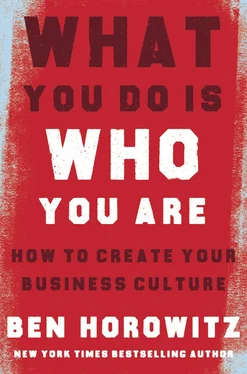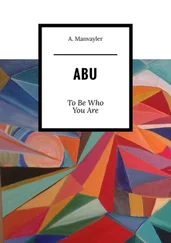To get them to be who you want, you will first need to see them for who they are. I wish I could give you a simple set of steps to do that, but there is no formula. Instead we’ll consider all these questions from a variety of perspectives. To that end, these chapters also feature modern-day case studies, usually worked up from my conversations with leaders who tried to change their companies. For instance, I examine how Toussaint Louverture’s cultural techniques were applied—or should have been applied—by Reed Hastings at Netflix, Travis Kalanick at Uber, and Hillary Clinton, and how Genghis Khan’s vision of cultural inclusiveness has parallels in the work of Don Thompson, the first African-American CEO of McDonald’s, and of Maggie Wilderotter, the CEO who led Frontier Communications.
I begin the second part of the book by walking you through how to understand your own personality and your company’s strategy and how to use that understanding to build the culture you need to succeed. Culture only works if the leader visibly participates in and vocally champions it. But most people don’t walk around with a supersharp definition of their personal cultural values. So how do you identify who you are and what parts of you belong in the organization (and don’t belong)? How do you become the kind of leader that you yourself want to follow?
Then I look at edge cases that can place your culture in conflict with itself or with your business priorities. And finally, I discuss a few components that probably belong in every culture, and give you a checklist of crucial principles.
Culture isn’t a magical set of rules that makes everyone behave the way you’d like. It’s a system of behaviors that you hope most people will follow, most of the time. Critics love to attack companies for having a “broken culture” or being “morally corrupt,” but it’s actually a minor miracle if a culture isn’t dysfunctional. No large organization ever gets anywhere near 100 percent compliance on every value, but some do much better than others. Our aim here is to be better, not perfect.
As a final word of discouragement: a great culture does not get you a great company. If your product isn’t superior or the market doesn’t want it, your company will fail no matter how good its culture is. Culture is to a company as nutrition and training are to an aspiring professional athlete. If the athlete is talented enough, he’ll succeed despite relatively poor nutrition and a below-average training regimen. If he lacks talent, perfect nutrition and relentless training will not qualify him for the Olympics. But great nutrition and training make every athlete better.
If a great culture won’t ensure success, why bother? In the end, the people who work for you won’t remember the press releases or the awards. They’ll lose track of the quarterly ups and downs. They may even grow hazy about the products. But they will never forget how it felt to work there, or the kind of people they became as a result. The company’s character and ethos will be the one thing they carry with them. It will be the glue that holds them together when things go wrong. It will be their guide to the tiny, daily decisions they make that add up to a sense of genuine purpose.
This book is not a comprehensive set of techniques for creating a perfect culture. There is no one ideal. A culture’s strengths may also be its weaknesses. And sometimes you have to break a core principle of your culture to survive. Culture is crucial, but if the company fails because you insist on cultural purity, you’re doing it wrong.
Instead, the book will take you on a journey through culture, from ancient to modern. Along the way, you will learn how to answer a question fundamental to any organization: who are we? A simple-seeming question that’s not simple at all. Because who you are is how people talk about you when you’re not around. How do you treat your customers? Are you there for people in a pinch? Can you be trusted?
Who you are is not the values you list on the wall. It’s not what you say at an all-hands. It’s not your marketing campaign. It’s not even what you believe.
It’s what you do. What you do is who you are. This book aims to help you do the things you need to do so you can be who you want to be.
Конец ознакомительного фрагмента.
Текст предоставлен ООО «ЛитРес».
Прочитайте эту книгу целиком, купив полную легальную версию на ЛитРес.
Безопасно оплатить книгу можно банковской картой Visa, MasterCard, Maestro, со счета мобильного телефона, с платежного терминала, в салоне МТС или Связной, через PayPal, WebMoney, Яндекс.Деньги, QIWI Кошелек, бонусными картами или другим удобным Вам способом.












